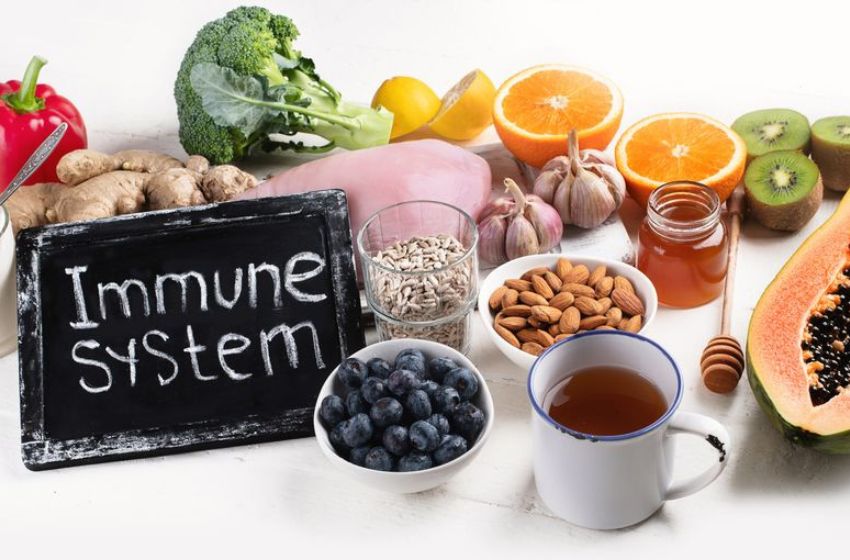Introduction
There is no one-size-fits-all answer to boosting your immune system, as the best way to do so depends on your individual needs and lifestyle. However, there are a few tips and tricks that experts agree will help improve your immunity.
One key step is getting enough exercise. A strong immune system is built by burning calories, and regular exercise can help you achieve this goal. Experts also recommend eating a balanced diet full of vitamins and minerals, including foods that are high in antioxidants. And Finally, don’t forget about sleep – when you get enough shut-eye, your body produces more anti-inflammatory hormones that support your immune system.
What are the 10 Best Ways To Boost My Immunity, According to Top Experts?
There are a variety of ways to boost your immunity and protect yourself from the viruses and other illnesses that can take hold during cold and flu season. Here are 10 best ways to boost your immunity:
1. Get enough sleep. Studies have shown that getting enough sleep helps to improve your overall health, including your immune system. In fact, getting more than seven hours of sleep each night has been linked with a decreased risk of developing cold and flu-related illnesses.
2. Eat plenty of fruit and vegetables. These foods are packed with vitamins, minerals, proteins, and antioxidants that help to strengthen your immunity system. Additionally, eating fresh fruits and vegetables can help prevent the spread of illness through contact with surfaces that have been contaminated with germs.
3. Boost your immune system naturally with supplements. There are many natural supplements available that can help to boost your immune system activity. Some good options include vitamin C, elderberry extract, garlic, ginger, omega-3 fatty acids, zinc oxide, probiotics (bacteria that support healthy gut function), and GLA (gamma linolenic acid). Consult a healthcare professional before taking any supplements for optimal results.
4. Avoid exposure to sick people or things. If you get sick, avoid close contact with others as much as possible to reduce the chances of spreading the infection further. And try not to touch sick people or their mucous membranes; this can transmit the virus easily in the form of saliva or other bodily fluids.
5. Wash your hands often. Handwashing is one of the most important steps you can take to protect yourself from getting sick, and it also helps to boost your immune system. Proper handwashing includes washing your hands with soap and water for at least 20 seconds, drying them off completely, and avoiding use of harsh chemicals or scents.
6. Avoid biting your nails. Biting your nails can lead to infections in the mouth, and can also damage the dentition and gums in your mouth which can make it difficult to fight off infections effectively. Try to avoid biting your nails altogether if possible.
7. Get exercise. Exercise has been shown to have a positive impact on overall health, including enhancing your immune system activity. Physical activity has been linked with a decrease in symptoms of colds and flu, as well as an increased resistance to illnesses in general.
8. Limit stress levels. Too much stress can have a negative impact on both your mental and physical health, including your immune system. Try to reduce or eliminate sources of stress in your life so that you can better maintain your overall health and immunity during cold and flu season.
9. Practice safe hygiene habits. Poor hygiene practices, such as not washing your hands often enough, can lead to the spread of illness. Follow proper hygiene guidelines to keep yourself and others healthy during cold and flu season.
10. Get vaccinated. Getting vaccinated against the viruses that can cause cold and flu is an important step in protecting yourself from getting sick. There are many available vaccine options, including those for the common cold, flu, HPV (human papillomavirus), measles, mumps, and rubella. Speak to your healthcare professional about which vaccine is best for you and your family.
Why is Immune System So Important?
The immune system is an incredibly important part of our health, as it helps protect us from infections and disease. It's responsible for fighting off foreign particles that may harm our cells, as well as attacking and destroying harmful cells within our own body.
There are a number of ways to boost your immunity naturally, and many experts say that taking regular exercise is one of the most important ways to do it. Exercise can help improve your overall fitness level, which in turn will help your immune system work better. It also helps to increase the production of white blood cells, which are crucial for defending against infection.
Other good ways to boost your immunity include eating a healthy diet full of fruits and vegetables, drinking plenty of water, and getting enough restful sleep. Make sure to avoid processed foods, caffeine, tobacco products, and other unhealthy habits that can damage your immune system.
How to Stimulate Your Immune System
Stimulating your immune system is one of the most important things you can do to keep yourself healthy. There are a variety of ways to do this, and each has its own benefits.
One way to stimulate your immune system is to eat healthy foods. This will help you build up your immunity and reduce the risk of getting sick. You can also boost your immune system by taking supplements or using natural remedies.
Another way to stimulate your immune system is to get exercise. Exercise helps increase blood flow and circulation, which helps your body fight infection. Additionally, exercise can improve mood and mental health, which can also help boost your immunity.
Finally, it's important to stress balance your life in general. This includes getting enough sleep, managing stress levels, and having a positive outlook on life. All of these things help support your immune system and make you more resistant to illness.[/vc_column_text][/vc_row]



